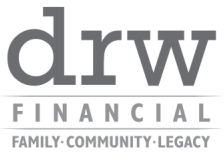|
4/9/2013 Functional Retirement?"Retirement" as a concept seems to loom large in people's minds and often dominates conversations around financial planning. Personal finance websites often feature a retirement "calculator" that attempts to put a simple number on a complex question: "When can I retire?". Stock brokers, insurance agents, and financial advisers (such as myself) run seminars and workshops on planning for retirement. Companies and the government encourage people to save for retirement in accounts with special tax treatment. Etc. What I have found is that while visions of retirement are as varied as the population, there seem to be some consistency in assumptions for retirement math:
These assumptions may generally describe a course of action for a "typical" person, but the reality for a particular person can be dramatically different. Today I want to talk about a concept I call "functional retirement" - it's quite different from the traditional definition of retirement as described above. Here, in its simplest form, functional retirement means a person has reached a place where they do not have to work a job. The paths to this place, and how the place itself looks will vary by person and situation, but there are a few characteristics common to those who have functionally retired:
Budgeting At reasonable first step to any financial plan, including one for functional retirement, is to apply discipline to the budgeting process. In order to control savings and spending, one has to have a clear picture of normal income and expenses. The goal with functional retirement is to work the budget to the point that passive income equals or exceeds living expenses. A simple spreadsheet can be a valuable tool in this effort, with entries for each kind and amount of recurring expenses, an accounting for rare but possible expenses, and a projection of likely passive income. Passive Income This is money coming in from investments (dividends from stocks, interest from bonds, rental property income, realized capital gains, etc) - this income does not depend on work. It's not salary or contract wages, but is money solely derived from productive investments. For those wishing to functionally retire earlier in life (before age 60, for example), this passive income would likely need to come from assets held outside of retirement accounts like IRAs. This is not to suggest that people seeking functional retirement shouldn't make use of qualified retirement accounts, but it does mean there may be a strategy calling to have some investments in retirement accounts and others outside for flexibility. A person reaching functional retirement may choose to work a traditional job or pick up contract work here and there, but having sufficient passive income to meet expenses means any additional work is elective. Constrained Expenses In my view, this piece is very often overlooked. If the main requirement for functional retirement is having enough passive income to cover regular expenses, it should be apparent that lowering expenses is a powerful step to meeting that requirement. Put another way, for every dollar put to work in an investment, only a small percentage comes available as income to cover expenses. Say, for example, that a person chooses an investment that produces a 4% yield each year. In order to cover a $1000 annual expense, the person would have to place $25000 into the investment ($25,000* 0.04 = $1000). But if they are able to cut the expense to $800 per year, the required investment drops to $20,000. In this way, being diligent and disciplined about expenses can significantly impact the need for savings and investment. Plan for the unexpected When expenses arise that did not figure in the initial budgeting plan, there is a danger of falling too far in passive income and needing to take on new work to make up the difference. A prudent approach may call for building up a buffer against the unexpected. Such a buffer may take the form of cash balance in a checking or savings account, an excess in passive income over the budgeted target, insurance policies for certain types of "unexpected" events, or a combination of all the above. Building in some "factors of safety" around a plan for functional retirement can help lessen the sting of unexpected challenges. All of the above can apply to a traditional view of retirement, but functional retirement can come earlier in life if a person chooses to make it happen. While certainly not for everyone, functional retirement could be a reasonable goal for more people to pursue. For further reading: there are a number of "extreme" retirement bloggers on the web. One that I read on a regular basis is the oddly named "Mr Money Mustache" - be warned that his language can be colorful at times. While I generally enjoy the blog and take inspiration from many of his posts, I should also note that his opinions are his own and do not fully represent my own. Comments are closed.
|
AuthorDavid R Wattenbarger, president of DRW Financial Archives
June 2022
Categories |

 RSS Feed
RSS Feed
